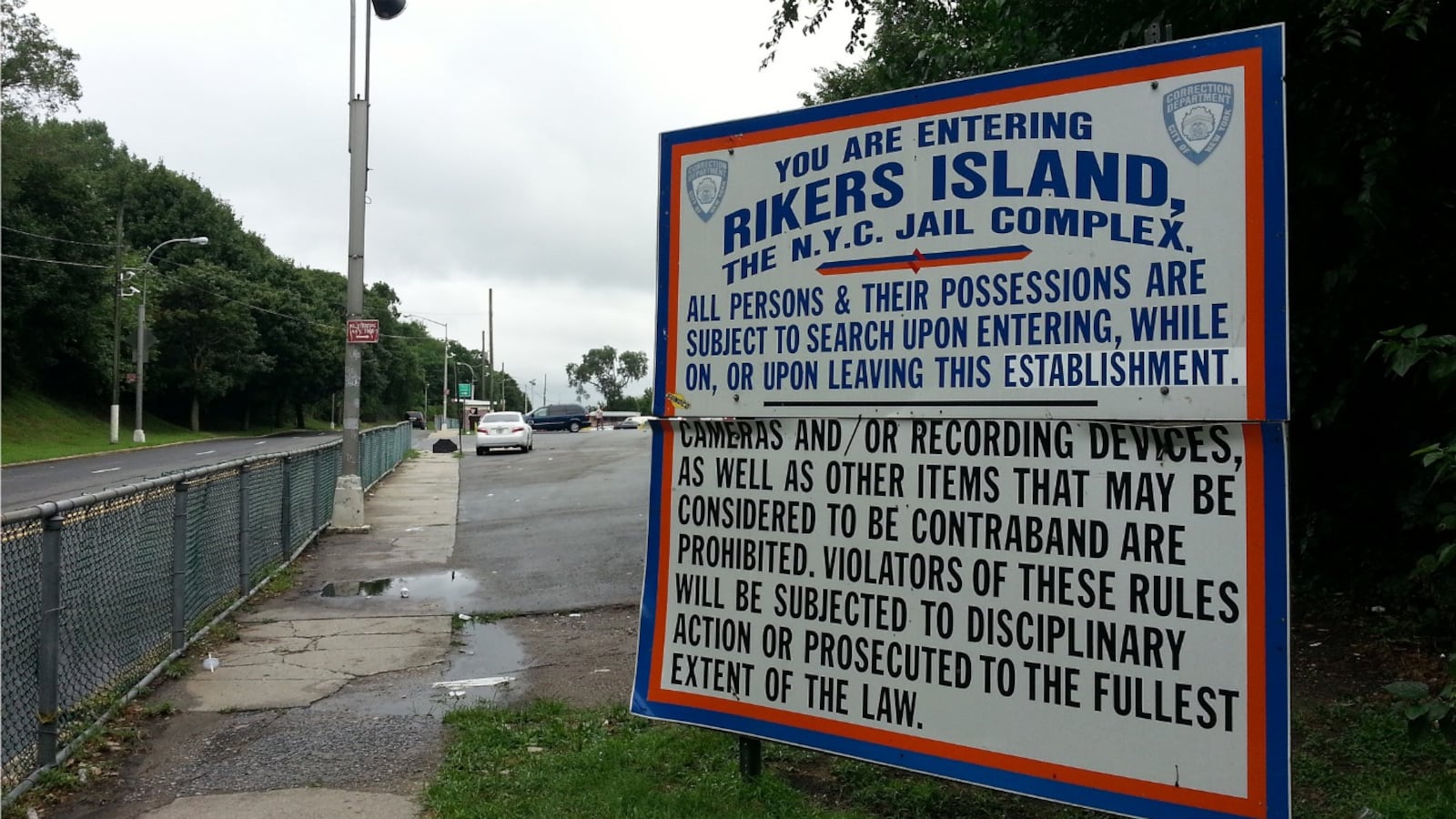Updated (8:30 p.m.) Teenage inmates on Rikers Island face extreme violence in and around the jail’s classrooms, according to a new Justice Department report.
The report, released Monday by the office of Preet Bharara, the federal attorney in Manhattan, accuses the Department of Corrections of failing to protect the constitutional rights of its approximately 500 adolescent inmates, who are subjected to “unnecessary and excessive force” from jail employees. Some of the worst abuses have taken place in the classrooms, hallways, and stairwells of the facility’s school space where surveillance is lacking, according to the report.
“It is unclear why the Department has not installed additional cameras in these areas,” the report reads.
The investigation recounts one incident in September 2012 when a teenage inmate, “after shouting obscenities at an officer who had hit him in the ribcage with handcuffs while he was sleeping in class,” was pulled out of a classroom and “severely beaten” in the hallway by a second officer. “Two teachers in the area reported hearing Inmate H screaming and crying for his mother while being beaten,” the report says.
The investigation found that teachers rarely report violence or serve as witnesses in cases of abuse. Evidence suggests Department of Corrections employees instruct teachers to turn a blind eye to the violence, and that educators fear repercussions for speaking up, the findings say.
The investigation focused on 16-to-18-year-old inmates. Sixteen and 17-year-olds are required to attend East River Academy, a District 79 program at Rikers, though the report does not point to the school by name. NY1 reported in June that three students graduated from the school with a high school diploma, and 81 passed the GED exam this year.
The report also criticizes “punitive segregation,” a practice where inmates, many of whom suffer from mental health problems, are isolated for 23 hours of the day. Those inmates are “not allowed to attend school, and are instead given schoolwork on worksheets and are offered educational services telephonically.”
In the report, the Justice Department said it may investigate these educational methods in the future to see if they satisfy the requirements set out in the Individuals with Disabilities Education Act.
The report ends with the threat of a federal lawsuit if the city does not attempt to address issues like the lack of surveillance cameras in school facilities.
Department of Correction Commissioner Joe Ponte said in a statement that the department had cooperated with the federal investigators over the course of their two-year inquiry.
He also listed several measures he has put in place to improve conditions for young inmates since he took over the department in April, including the formation of a working group to study best practices for managing adolescent inmates, new trainings for staff that work with those inmates, the separation of 16 and 17-year-old inmates from 18-year-olds, and the installation of new security cameras. Between April and June, the jail saw a 39 percent decline in the number of incidents where guards used force against adolescent inmates, Ponte said.
“I am committed to the safety and wellbeing of all DOC inmates, but I am especially focused on radically improving security and outcomes for the adolescent population,” he said in the statement.

